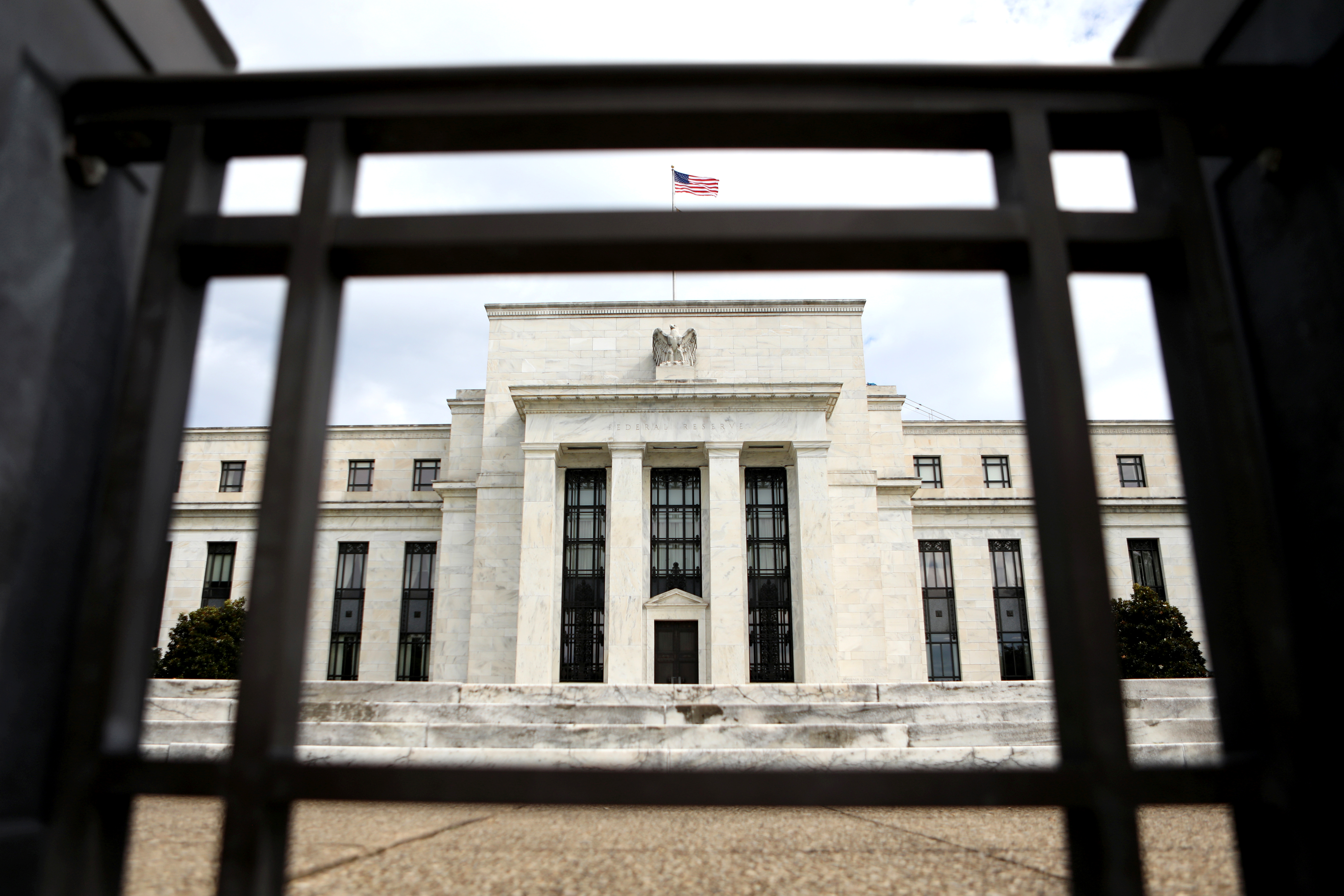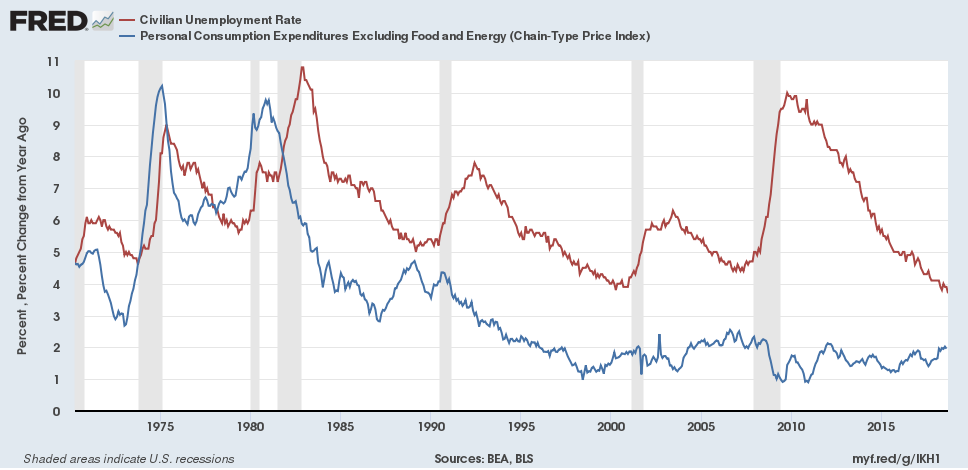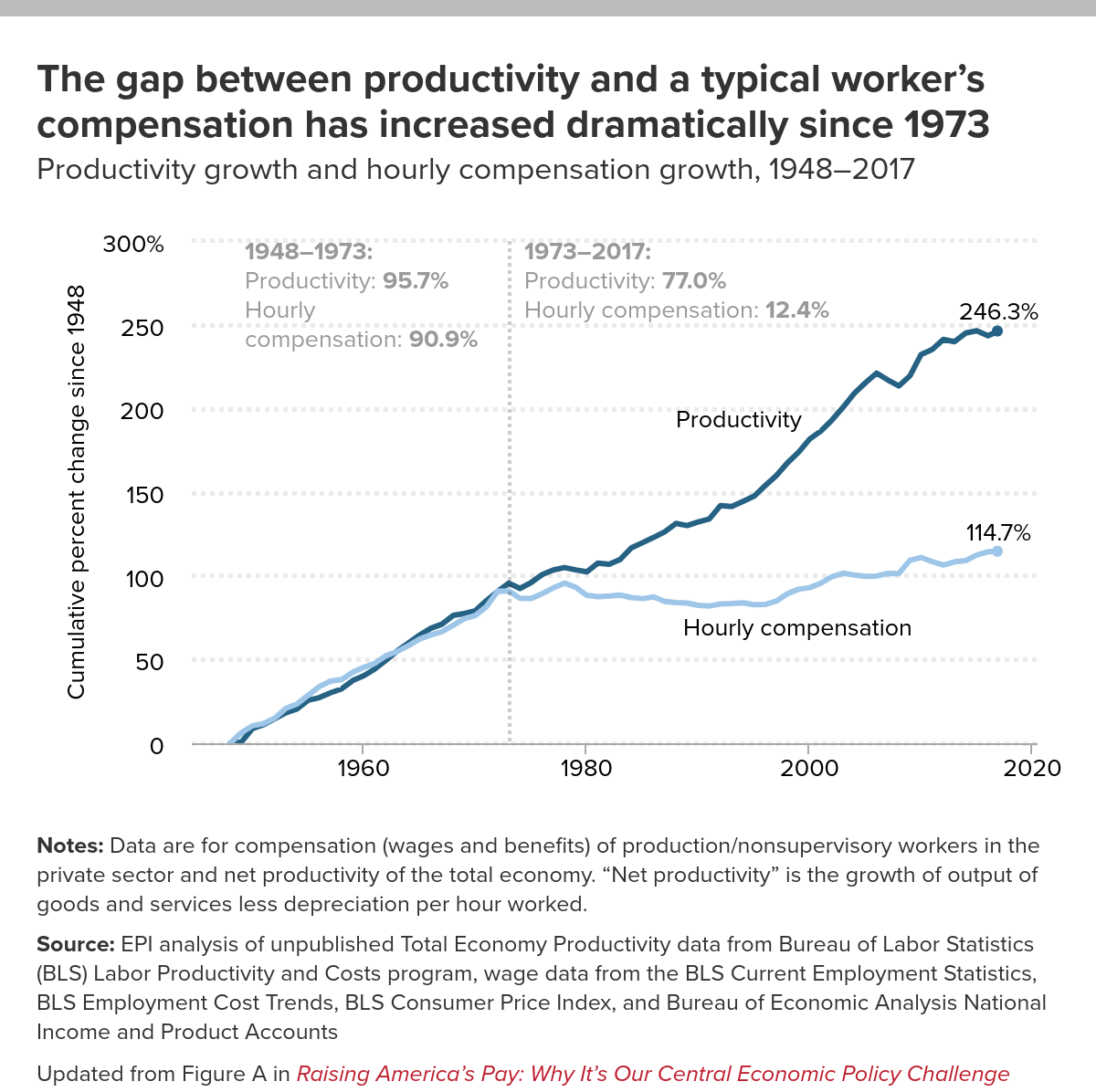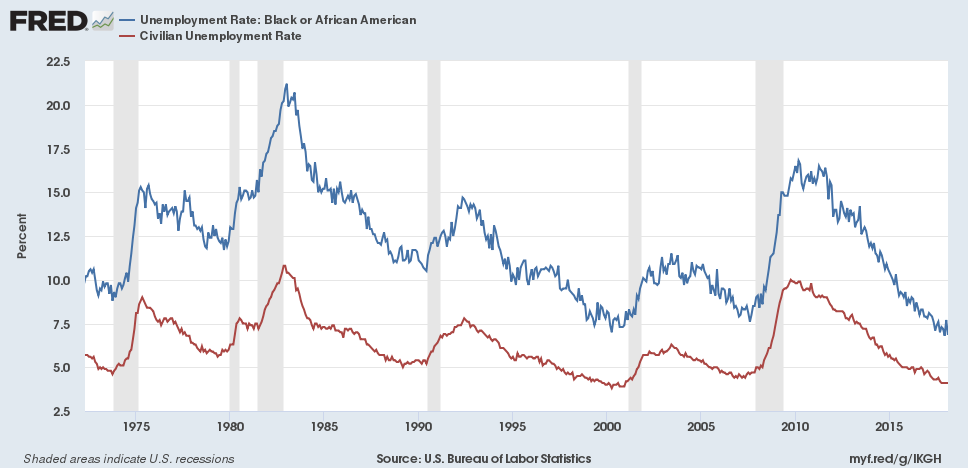The Fed needs better rules. This Democratic bill is a start.
Ro Khanna's bill to fix the Federal Reserve, explained


A free daily email with the biggest news stories of the day – and the best features from TheWeek.com
You are now subscribed
Your newsletter sign-up was successful
The Federal Reserve has two jobs. Unfortunately, over the past few decades, it's been doing one of them quite poorly: Ensuring unemployment remains low and wage growth high.
Rep. Ro Khanna (D-Calif.) thinks this is an issue Democrats should take on. And this afternoon he's releasing a bill to get the ball rolling.
The "Coretta Scott King Full Employment Federal Reserve Act of 2018" — named after the African-American activist who made full employment a hallmark of her civil rights efforts — would amend the Federal Reserve's obligations in several ways.
The Week
Escape your echo chamber. Get the facts behind the news, plus analysis from multiple perspectives.

Sign up for The Week's Free Newsletters
From our morning news briefing to a weekly Good News Newsletter, get the best of The Week delivered directly to your inbox.
From our morning news briefing to a weekly Good News Newsletter, get the best of The Week delivered directly to your inbox.
Right now, the mission statement Congress gave the Federal Reserve says the central bank should promote "stable prices" (i.e. low inflation) and "maximum employment." These responsibilities have an inverse relationship: When the Fed raises interest rates, it lowers prices but also holds down job growth. When it lowers rates, it promotes jobs but also risks creating more upward pressure on prices. Striking a balance is obviously very important.
But the law also lets the central bank decide for itself what "stable prices" and "maximum employment" mean. For the former, the Fed has picked a 2-percent inflation rate target. For the latter, well, it's not really clear. As a result, the Fed's record on monetary policy since the 1980s looks like a clear case of tolerating unemployment (in red) to keep down inflation (in blue).

"The key from our perspective was that full employment needs to be specified and defined more concretely so the Fed doesn't just have a bias towards fighting inflation," Khanna told The Week.
To accomplish that goal, his bill first defines full employment not with a numeric value, but with an observable condition: median wages rising with worker productivity growth. The reason is that maximizing employment is ultimately about giving workers the bargaining power to claim their fair share of the wealth they create. That requires wages to rise with productivity — i.e. how much value a worker produces per hour of work — pretty much by definition.
A free daily email with the biggest news stories of the day – and the best features from TheWeek.com
Over the past few decades, this condition has rarely been met. Well-known work from the Economic Policy Institute — several of whose economists helped Khanna craft the bill — shows wages have actually grown more slowly than productivity for decades:

After growing in tandem for many years, workers' wages stagnated in the mid-'70s, while productivity just kept climbing.
Equally important, the bill requires the Fed to minimize disparities in unemployment between racial, gender, urban-vs-rural, and other demographic groups. For example, the unemployment rate for African-Americans (in blue, at 6 percent last month) has historically been almost twice that of the national unemployment rate (in red, at 3.7 percent):

If the Fed simply looks at aggregate unemployment and declares mission accomplished, it could leave behind whole swaths of more marginalized groups. Back in 2015, then-Fed Chair Janet Yellen admitted the central bank's ability to help African-American workers was limited by its 2-percent inflation target. Khanna's bill would help rectify the imbalance.
Khanna's bill also adds another qualifier to its definition of "maximizing employment": minimizing the number of underemployed workers and ensuring nearly all job seekers can find work — also a circumstance that's been exceedingly rare until just recently.
If that definition sounds almost as fuzzy as "maximizing employment," that's by design. While Khanna's bill certainly implies the Fed has too much discretion in defining its own goals, he doesn't want to rein in the central bank's independence too much.
Allowing the Fed to decide for itself what level of part-time work is "minimal" or what counts as "nearly all" job seekers gives it a great deal of power. Conservative economists, for instance, have sliced and diced wage data to insist wages have almost always grown with productivity. So it's at least possible the Fed could maintain the status quo under Khanna's bill. This flexibility will surely worry some progressives.
Now, the bill does say the Fed must use median wages when determining when wages are growing with productivity. (If the Fed used average wages, its measurement could be thrown off by income inequality.) And Jared Bernstein, another economist who consulted on Khanna's bill, told The Week he doubts Fed economists would ever buy into the conservative story that wages already align with productivity: the analytical moves required are too questionable. But overall, Khanna's bill still leaves the Fed a good deal of leeway.
Bernstein thinks Khanna has struck the right balance. "Maybe more than other progressives I really want to avoid tying the hands of the Federal Reserve with rule-based policies," he said. While the Fed certainly prioritizes inflation now, you could imagine some future scenario where a rule forces the Fed to lower interest rates even when inflation really is too high.
What about critics to Khanna's right? They're likely to contend that his bill puts unnecessary shackles on the Fed. The U.S. hasn't seen high inflation since the '80s, and while the financial crisis ushered in mass unemployment, the Fed has since brought joblessness down to a historic low. The thing is, unemployment may be 3.7 percent right now, but the last time it fell this low was for one very brief moment around 2000. Before that, you have to go all the back to 1970. America haven't seen consistent full employment for decades. Instead, it's witnessed very brief bursts of full employment, with 20 or 30 years of much higher joblessness in between. Preventing that pattern from continuing is what Khanna's bill is all about.
That brings me to the last important point of the legislation: While Khanna doesn't want to disempower the Fed, he does want to change who wields that power through reforms to its governance structure.
The body of Fed officials that decides national monetary policy include a number of seats that are filled by presidents of the Fed's regional branches on a rotating basis. They in turn consult with the directors at the regional branches. Some of those directors are set aside for the banking sector to fill, a setup that arguably helps bias the Fed. Khanna's bill would reform this process, so that all the directors are picked in the same way, in consultation with the public, and with no special set-asides for the banking industry. And it requires the Fed branches to consider racial, gender, class, and other forms of diversity in picking the regional bank presidents.
Finally, the bill would instruct the Fed to issue regular reports on its own prior estimates of future employment and inflation, and on how its monetary policy has affected different demographic groups. The point is to force the Fed to think harder about its own decisions, and to give lawmakers better information to assess them as well. "In Silicon Valley there's a saying that if you don't measure something you'll never achieve it," Khanna said. "So the first step to changing a policy is to have a better measurement."
Several Democrats have already signed up as co-sponors for Khanna's legislation, including Rep. Frederica S. Wilson (D-Fla.) and Rep. Keith Ellison (D-Minn.). At the end of the day, Democrats and progressives will have to decide if they want to make a national issue out of monetary policy. Arguably, the answer to President Trump's politicization of the Fed is not to leave the central bank alone, but to get serious about holding Fed officials accountable.
Whenever Democrats retake power in Washington, Khanna's bill would be a good place to start.
Jeff Spross was the economics and business correspondent at TheWeek.com. He was previously a reporter at ThinkProgress.
-
 Why is the Trump administration talking about ‘Western civilization’?
Why is the Trump administration talking about ‘Western civilization’?Talking Points Rubio says Europe, US bonded by religion and ancestry
-
 Quentin Deranque: a student’s death energizes the French far right
Quentin Deranque: a student’s death energizes the French far rightIN THE SPOTLIGHT Reactions to the violent killing of an ultraconservative activist offer a glimpse at the culture wars roiling France ahead of next year’s elections
-
 Secured vs. unsecured loans: how do they differ and which is better?
Secured vs. unsecured loans: how do they differ and which is better?the explainer They are distinguished by the level of risk and the inclusion of collateral
-
 The billionaires’ wealth tax: a catastrophe for California?
The billionaires’ wealth tax: a catastrophe for California?Talking Point Peter Thiel and Larry Page preparing to change state residency
-
 Bari Weiss’ ‘60 Minutes’ scandal is about more than one report
Bari Weiss’ ‘60 Minutes’ scandal is about more than one reportIN THE SPOTLIGHT By blocking an approved segment on a controversial prison holding US deportees in El Salvador, the editor-in-chief of CBS News has become the main story
-
 Has Zohran Mamdani shown the Democrats how to win again?
Has Zohran Mamdani shown the Democrats how to win again?Today’s Big Question New York City mayoral election touted as victory for left-wing populists but moderate centrist wins elsewhere present more complex path for Democratic Party
-
 Millions turn out for anti-Trump ‘No Kings’ rallies
Millions turn out for anti-Trump ‘No Kings’ ralliesSpeed Read An estimated 7 million people participated, 2 million more than at the first ‘No Kings’ protest in June
-
 Ghislaine Maxwell: angling for a Trump pardon
Ghislaine Maxwell: angling for a Trump pardonTalking Point Convicted sex trafficker's testimony could shed new light on president's links to Jeffrey Epstein
-
 The last words and final moments of 40 presidents
The last words and final moments of 40 presidentsThe Explainer Some are eloquent quotes worthy of the holders of the highest office in the nation, and others... aren't
-
 The JFK files: the truth at last?
The JFK files: the truth at last?In The Spotlight More than 64,000 previously classified documents relating the 1963 assassination of John F. Kennedy have been released by the Trump administration
-
 'Seriously, not literally': how should the world take Donald Trump?
'Seriously, not literally': how should the world take Donald Trump?Today's big question White House rhetoric and reality look likely to become increasingly blurred
